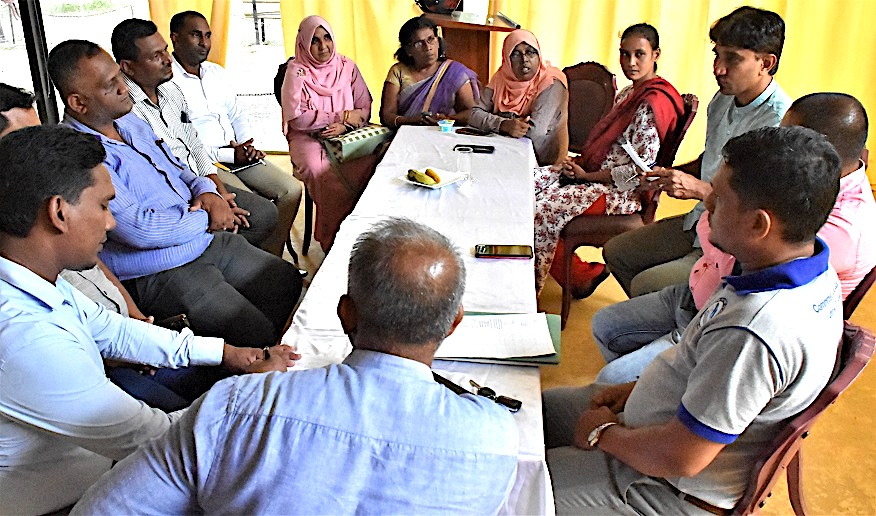
NPC, with the assistance of its partner organizations, conducted networking meetings in the districts of Ampara, Matara, Badulla, Kandy, Rakwana, Negombo, Trincomalee and Vavuniya. The way subnational NGOs interacted with multiple religious leaders at the meeting revealed gaps in their pluralism capacity. For example, they gave more attention and respect to the majority religious leaders in comparison to minority religious leaders.
Based on this observable gap in pluralism, NPC is organizing residential training programmes on pluralism and the rule of law for 40 subnational NGOs from 14 districts.
In the Trincomalee, Ampara, Vavuniya, Bandarawela and Rakwana districts, NPC discussed with policymakers, including community based organizations, state officials, community police and religious leaders, how they could engage with NGOs at the subnational level on resolving religious conflicts before they escalated.
Policymakers highlighted concerns of the Malay Muslim community in the Ampara district. The community faces discrimination from the Muslim, Tamil and Sinhalese communities because they were destitute; they were also excluded from owning land. Land owners were mainly from the majority communities and were reluctant to sell land to the Malay community. The community was not able to access high paying jobs while business owners were experiencing religious discrimination when it came to employment.
The Local Inter Religious Committee (LIRC) in Ampara has intervened to find solutions to the plight faced by the Malay community. However, the issue persists and will be followed up by the LIRC, which will monitor the situation closely.

